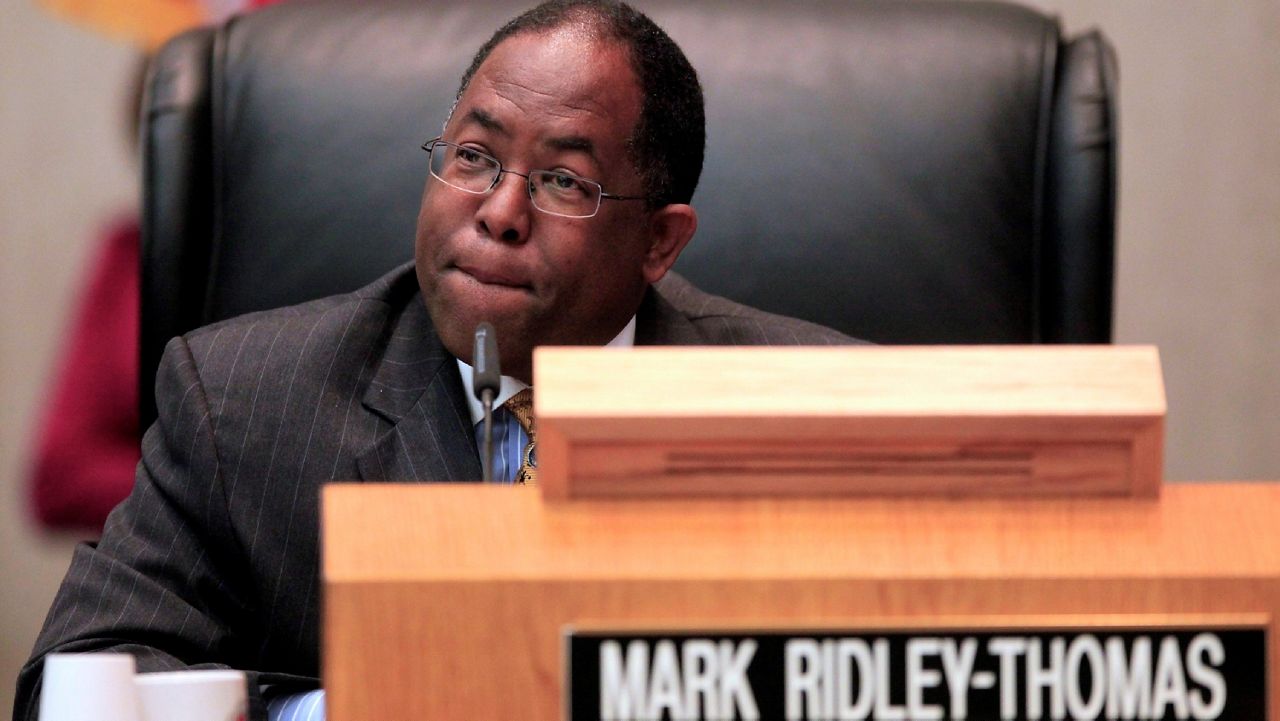LOS ANGELES (CNS) — Suspended City Councilman Mark Ridley-Thomas — who is facing federal corruption charges for misdeeds allegedly committed while he was a member of the county Board of Supervisors — had his city salary and benefits reinstated by the council Wednesday after he reached a $364,573 settlement in his lawsuit against City Controller Ron Galperin and the city.
Galperin had suspended Ridley-Thomas’ pay and benefits after the councilman’s indictment.
Ridley-Thomas was suspended from the council last October after his indictment. The lawsuit claimed that Galperin acted unilaterally to cut Ridley- Thomas’ pay and did so to help his campaign for state controller. Galperin finished fifth in the field of six.
The council voted 10-1 to approve the settlement, with Councilman Mitch O’Farrell casting the lone vote in dissent.
In a statement, Galperin maintained that his decision was “in accordance with city law.”
“I acted because my job as Controller and the taxpayers’ watchdog required it,” Galperin said.
The settlement includes $254,000 in back pay and $99,500 in attorneys’ fees.
Councilman Curren Price, in a statement, said the council decision “corrects an action that should have never been allowed to happen in the first place.”
Price, along with Council President Paul Krekorian, introduced two motions earlier this year asking the city attorney to determine if the city controller has the authority to withhold Ridley-Thomas’ pay.
“It is clear the City Controller made a rush to judgment without merit and I’m pleased by the council’s decision to resolve this matter fairly,” Price said. “Council member Ridley-Thomas has a right to due process, and that should take place in the court of law.”
Ridley-Thomas and former dean of the USC School of Social Work Marilyn Flynn were charged in a 20-count indictment alleging a secret deal in which Ridley-Thomas — when he was a county supervisor — agreed to steer county money to the university in return for admitting his son Sebastian Ridley-Thomas into graduate school with a full-tuition scholarship and a paid professorship. Flynn pleaded guilty in September.
In exchange, the indictment contends, Ridley-Thomas supported county contracts involving the School of Social Work, including lucrative deals to provide services to the county Department of Children and Family Services and Probation Department, as well as an amendment to a contract with the Department of Mental Health that would bring the school millions of dollars in new revenue.
The City Council’s 10th District is currently being represented by Councilwoman Heather Hutt, who was appointed by the council to the seat in September. Prior to that, Hutt was serving as a caretaker while Herb Wesson — who was originally appointed to fill in during Ridley-Thomas’ suspension — was legally barred from performing his duties on the council and eventually had to resign.
In Price’s motions, he contended that Ridley-Thomas is suffering an “extreme personal financial burden ... especially if ultimately the litigation is resolved with exoneration.”
Ridley-Thomas sued the city and Galperin in July, seeking a ruling to strike down the decision as unlawful, along with attorneys’ fees.
“A person is innocent until proven guilty, not guilty until proven innocent,” William Epps, a pastor at the Second Baptist Church, told the council in October. “I think that the action that was taken dubbed him as being guilty, and he has to prove his innocence. And that’s not the way due process works.”



